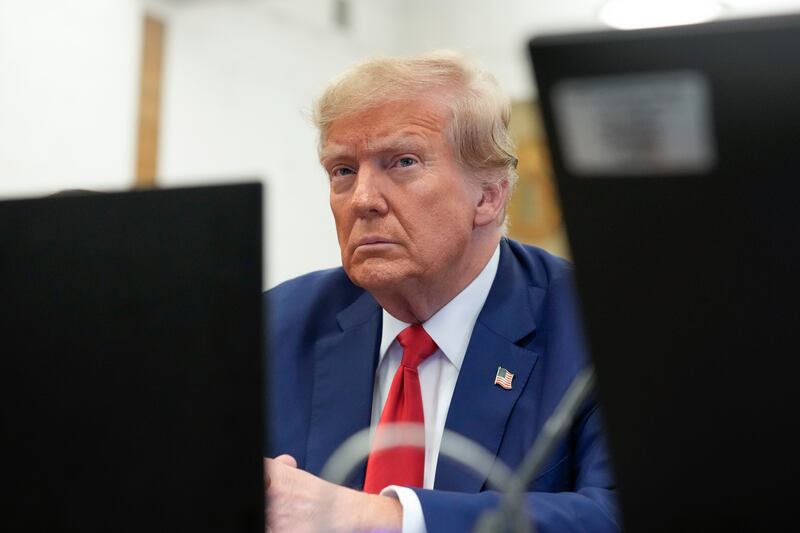New York Appellate Judge Anil Singh on Wednesday denied former President Donald Trump’s request to delay the $450 million payment while the former president is in the process of appealing the case.
However, Singh lifted Trump’s ban on doing business, allowing him the opportunity to obtain a loan from a New York bank and fulfill the total bond amount by giving him access to the equity in his assets.
“The ruling also means that Donald Trump Jr. and Eric Trump can continue to run the family company, but they will each have to post more than $4 million or secure a bond in that amount to pursue their own appeals,” per CNN.
The ruling is only temporary until the entire appeals court reviews the motion. New York Attorney General Letitia James is required to submit her brief to the panel by March 11, with Trump’s responses expected by March 18.
The appellate court judge was asked earlier Wednesday to rule on former Trump’s request to delay his penalty payment of more than $450 million in his civil fraud trial. In a filing, Trump’s attorneys also said that Trump would offer a $100 million bond toward Supreme Court Judge Arthur Engoron’s ruling that was made earlier this month.
Engoron’s ruling, the most expensive legal penalty to date, mandated that Trump pay a fine of $355 million, in addition to interest, and prohibited him from leading any company based in New York for a duration of three years.
“The exorbitant and punitive amount of the judgment coupled with an unlawful and unconstitutional blanket prohibition on lending transactions would make it impossible to secure and post a complete bond,” Trump’s attorneys wrote in the filing. “Appellants nonetheless plan to secure and post a bond in the amount of $100 million.”
The New York Attorney Generals Office requested that the appeals court deny the appeal made by Trump, according to The New York Times:
“There is no merit to defendants’ contention that a full bond or deposit is unnecessary because they are willing to post a partial undertaking of less than a quarter of the judgment amount,” James’ office said. “Defendants all but concede that Mr. Trump has insufficient liquid assets to satisfy the judgment.”
Trump has less than a month to pay the required funds to stop the New York Attorney General’s office from initiating actions to enforce the judgment made by Engoron. This includes moving to confiscate properties.
A bond, in the context of legal and financial matters, is a form of security or a guarantee that is posted by an individual, in this case, Trump, to ensure the performance of an obligation or to secure the right to appeal a court’s decision
In their filing, Trump’s defense attornies Alina Habba and Clifford Robert wrote, “The urgency of this application is evident in light of the punitive and exorbitant disgorgement awarded against Appellants, the impact of the injunctive relief upon lawful businesses, the uncertainty created by the vague and overbroad directives Supreme Court issued, and the Attorney General’s public threats that she will seize Appellants’ real property forth with to satisfy the Judgment.”
Trump has not proved that he has the liquid assets necessary to fulfill the judgment made in the civil fraud case.
In an interview with ABC News, James said, “If he does not have funds to pay off the judgment, then we will seek judgment enforcement mechanisms in court, and we will ask the judge to seize his assets.”


